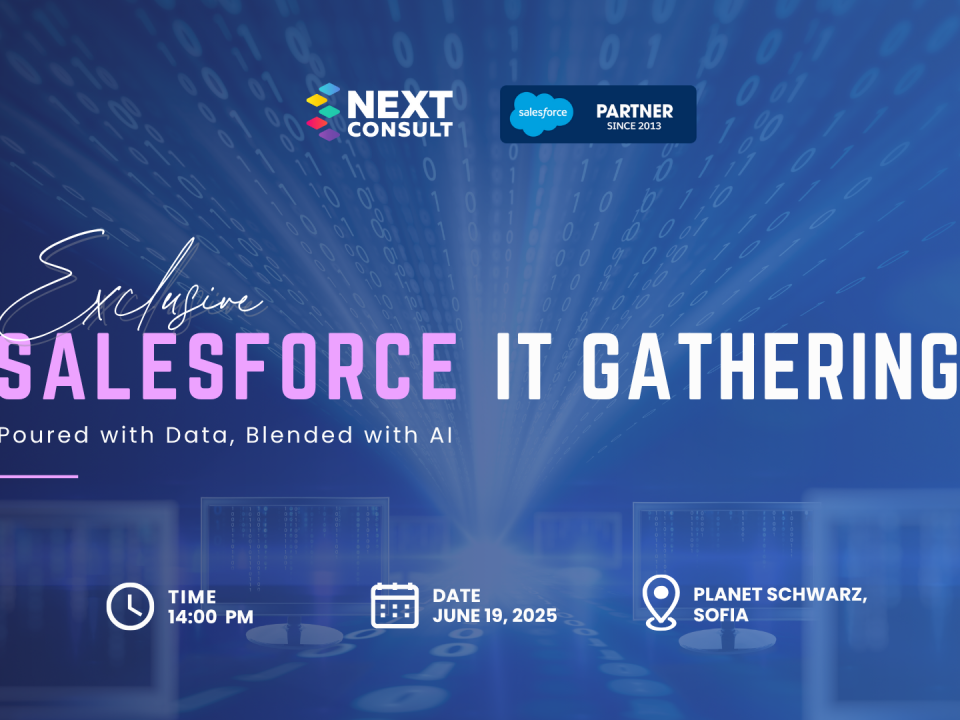
Bulgaria is not far away from the level of the worldwide standards for business digitalization
Our partner “Client Success” - Jan Skvaril, who was one of the speakers at the second national conference for small and medium-sized businessес Smart Growth: Revolution 4.0, was invited by Bloomberg TV for an interview as part of the ‘World is business” series.
Jan discussed the hot topic of digital transformation, in particular regarding small and mid-sized companies and how they can steer this process and leverage the power of technology to their advantage.
A general assumption is that when buying a new IT solution, you expect it to immediately solve your problems and optimize the processes and structure of your organization. In reality, there is a lot of work to be done before implementing such a system, so that it can do the job you intended for. In the beginning, you need to specify and describe your current processes and what they should look like after changing them. It is the basis and the secret of every successful business software implementation.
Jan emphasized the advantage of working with a consulting partner if you don’t have the internal know-how and resources to do such an analysis before starting an implementation process. First, you receive valuable expertise and advice from an experienced team of specialists with consolidated years of experience. You also get the required IT support, regarding the solution you have chosen to implement. Whether it's CRM, ERP or robotic process automation, companies can benefit hugely from a guiding and experienced consulting partner that can structure and optimize the processes and help them innovate and extend their existing infrastructure, level of digitalization and operational excellence.

It is critical for every business, especially when it comes to SMBs who lack resources and internal expertise, to deeply analyze the business needs and processes, define the main purposes, and how to get there with or without the support of a consulting partner. Only after that, the business can take the next step towards the implementation of any kind of software solution.
At Next Consult, Jan Skvaril manages the SAP business of the company and supports the business development of the RPA department (robotic process automation). He has solid practical and consulting experience in various industries, and has helped numerous companies implement software robots and successfully automate different business functions and processes within their organizations.
“Many managers think that this technology should just save time and make staff redundant. However, software robots were created with another purpose - to help companies get rid of boring, routine tasks that inevitably lead to human error, and redirect employees to work on tasks with higher added value for the business.” - shared Jan.
There are pre-configured robots that can be used in certain industries like manufacturing and production, etc. But this technology also gives you the flexibility of configuring your own robot to perfectly suit the unique needs of your business. Imagine a company that wants to be a top performer in a very competitive industry. To achieve this, the company needs to regularly get information about competitors' prices and compare them with its own at any given moment. Usually, this is a difficult and time-consuming manual task that requires solid resources, and research, and can lead to many typing errors. However, all of this can be executed fully by a software robot. A robot can be configured to search for and find the necessary information on the Internet, for example. Then it can structure and deliver it in an Excel file, or directly import it into a system. Robots work 24/7, never get tired, and make zero mistakes. Who wouldn’t try that?
Jan explained exactly why this time of political and economic uncertainty is a good opportunity for introducing such innovations to a business. RPA is a non-invasive technology with a quick return on investment. It is relatively cheap and with a very low level of risk for businesses because it can be implemented within 2-3 months.
Jan also shared that due to COVID-19 and other disruptive events, companies are being very cautious and approaching the digital transformation process with a certain degree of fear. He believes that this should not apply when implementing the RPA technology as it is a very explicit, non-disruptive one, and requires fewer resources and time.
Usually, when it comes to complex systems like ERP or CRM, companies are waiting for the environment around them to calm down. Nevertheless, Jan advises that this should not be so and shares that many companies are quickly realizing they will be lagging behind unless they embrace the change and try to stay on top of innovation and digitalization. Innovation and digitalization are advantages for today's dynamic, demanding, and extremely competitive business and economic environment.
If you want to learn more about the RPA technology and what are the benefits for companies, check out here: https://next-consult.com/ui-path/






